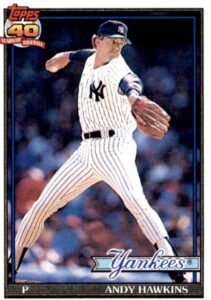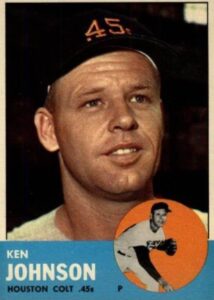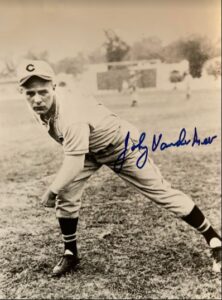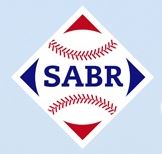Passing time browsing Baseball-Reference.com while I wait for the owners and players to come to their senses, I ran across an interesting boxscore – Andy Hawkins’ 1990 no-hitter, which he lost 4-0 and then later lost … Oops, getting ahead of the story here.
Andy Hawkins’ Double-Lost No-Hitter
 As Yankees’ righthander Andy Hawkins took the mound on July 1, 1990, the fans may not have expected a victory and almost certainly would not have been expecting a no-hitter. Yet, Hawkins – who brought a 4-9 record (13 games/12 starts) and a 6.40 earned run average into the game – would get (temporarily) the least expected of the two.
As Yankees’ righthander Andy Hawkins took the mound on July 1, 1990, the fans may not have expected a victory and almost certainly would not have been expecting a no-hitter. Yet, Hawkins – who brought a 4-9 record (13 games/12 starts) and a 6.40 earned run average into the game – would get (temporarily) the least expected of the two.
The game was being played in Chicago and Hawkins’ mound opponent was southpaw Greg Hibbard, who was 8-6, 2.49 at the time. After seven frames the game was knotted at 0-0, and Hawkins had given up no hits, while walking two and fanning three. Hibbard had also tossed seven scoreless innings (four hits, no walks, four whiffs).
Barry Jones came to the mound for the ChiSox in the top of the eighth and held the Yankees without a run. In the bottom of the eighth, the baseball Gods began to “mess with” Hawkins’ game. It started out fine, with ChiSox catcher Ron Karkovice and 2B Scott Fletcher both going down on infield pop ups. Then, RF Sammy Sosa (batting in the eight-hole) reached first on an error by Yankee third baseman Mike Blowers (a bobbled ground ball). Hawkins followed by walking SS Ozzie Guillen on a 3-2 pitch and then issuing a four-pitch walk to CF Lance Johnson. Sacks full, but shutout, no-hitter and the chance of a much-needed win still intact. Next up was 3B Robin Ventura, who hit a playable flyball to rookie Jim Leyritz in LF. The ball clanked off Leyritz’ glove for an error and – with the runners moving (two outs) – all three scored (Ventura ended up on second). Next up was DH Ivan Calderon, who hit a fly to RF that Jesse Barfield lost in the sun and dropped (another error) enabling the fourth run of the inning to score. Hawkins then retired LF Dan Pasqua to end the inning.
The Yankees went scoreless off reliever Scott Radinsky in the top of the ninth, ending the game. At that moment, Andy Hawkins had a complete-game, no-hitter, 4-0 loss. Little did Hawkins know; he was going to lose this no-hitter a second time.
In September of the following season (1991), MLB ruled that official no-hitters had to be at least nine innings. Since the White Sox had not batted in the bottom of the ninth, Hawkins, despite the complete game, no longer had an official no-hitter.
It Was That Kind Of Season
In Andy Hawkins’ next start, just five days after his July 1, 1990 no-hit loss, Hawkins carried a NO-HIT, shutout into the twelfth inning (against the Twins in New York). Unfortunately, the Twins’ Allan Anderson and Juan Berenguer held the Bombers scoreless (despite ten hits). The Twins got to Hawkins for two runs (two walk and two hits) in the twelfth and Rick Aguilera set down the Yankees without a run in the bottom of the inning. So, 11 no-hit innings for Hawkins and the end result was another loss. That gave Hawkins a streak of 19 consecutive hitless innings over the two games – with two losses to show for it.
Hawkins finished 1990 at 5-12, 5.37. Hawkins pitched in 10 MLB seasons (1982-91 … Padres, Yankees, A’s), going 84-91, 4.22. His best season was 1985, when he went 18-8. 3.15.
_______________________________________
Looking into Hawkins’ lost (in more ways than one) no-hitter, set me to looking for other unusual no-hitter outings.
A.J. Burnett … A Walk on the Wild Side
 In A.J. Burnett’s May 12, 2001 no-hitter for the Marlins, a 3-1 win over the Padres, every starting position player for the Padres reached base at least once. (Burnett walked nine and hit one batter). Burnett’s nine walks are the most ever in a nine-inning, one-pitcher no-hitter. Burnett threw 65 strikes and 64 balls in the game – his 50.4 percent strike-to-ball ratio is the worst ever in a no-hitter.
In A.J. Burnett’s May 12, 2001 no-hitter for the Marlins, a 3-1 win over the Padres, every starting position player for the Padres reached base at least once. (Burnett walked nine and hit one batter). Burnett’s nine walks are the most ever in a nine-inning, one-pitcher no-hitter. Burnett threw 65 strikes and 64 balls in the game – his 50.4 percent strike-to-ball ratio is the worst ever in a no-hitter.
His game looked like this:
- First inning – One (four-pitch) walk, one left on base.
- Second inning- Two walks (both on 3-2 pitches), one left on base.
- Third inning – Two walks (on 3-1 and 3-2 counts), one wild pitch, two left on base.
- Fourth inning – One walk (3-1 pitch), one hit by pitch (3-2 count), two left on base.
- Fifth inning – Three up, three down.
- Sixth inning – Three up, three down.
- Seventh inning – One walk (four-pitch), one left on base.
- Eighth inning – Two walks (on four-pitch, one on a 3-2 count), two left on base.
- Ninth inning – Three up, three down.
A.J. Burnet pitched in 17 MLB seasons (1999-2015 … Marlins, Blue Jays, Yankees, Pirates, Phillies), going 164-157, 3.99. He won ten or more games in 11 seasons (a high of 18 for the Blue Jays in 2008).
A First for A.J.
A.J. Burnett made his first All Star team in his final MLB season (at age 38 in 2015). He was 2-4, 2.53, for the Pirates, at the All Star break. He went 7-3, 3.89 the rest of the way.
Ken Johnson … How About a Little Help from My Friends?
 On April 23, 1964, the Houston Colt .45s’ Ken Johnson had held the Reds hitless through eight innings (in Houston) – walking two and fanning nine. However, the Reds’ Joe Nuxhall also had a shutout going, although he had given up five hits. A couple of errors in the ninth cost Johnson the game – but not the no-hitter. In the top of the ninth, Nuxhall led off against Johnson and grounded out (third-to-first). The next batter, 2B Pete Rose, attempted to end the no-no with a bunt to the third base side of the infield. Johnson fielded the bunt, but threw wildly toward first base. Rose ended up on second (a two-base error). Chico Ruiz followed up with a line drive off Johnson that was fielded by 3B Bob Aspromonte, who threw Ruiz out at first (with Rose going to third). Next up was Reds’ CF Vada Pinson, who was safe on an error by Houston 2B Nellie Fox (Rose scoring). Johnson then retired RF Frank Robinson on a routine fly to left. The no-hitter was intact, but the damage was done – one unearned run. Nuxhall held the Colt .45s scoreless in the bottom of the inning and Johnson had MLB’s only complete-game, official no-hitter loss.
On April 23, 1964, the Houston Colt .45s’ Ken Johnson had held the Reds hitless through eight innings (in Houston) – walking two and fanning nine. However, the Reds’ Joe Nuxhall also had a shutout going, although he had given up five hits. A couple of errors in the ninth cost Johnson the game – but not the no-hitter. In the top of the ninth, Nuxhall led off against Johnson and grounded out (third-to-first). The next batter, 2B Pete Rose, attempted to end the no-no with a bunt to the third base side of the infield. Johnson fielded the bunt, but threw wildly toward first base. Rose ended up on second (a two-base error). Chico Ruiz followed up with a line drive off Johnson that was fielded by 3B Bob Aspromonte, who threw Ruiz out at first (with Rose going to third). Next up was Reds’ CF Vada Pinson, who was safe on an error by Houston 2B Nellie Fox (Rose scoring). Johnson then retired RF Frank Robinson on a routine fly to left. The no-hitter was intact, but the damage was done – one unearned run. Nuxhall held the Colt .45s scoreless in the bottom of the inning and Johnson had MLB’s only complete-game, official no-hitter loss.
Edwin Jackson – Who’s Counting?
On June 25, 2010, the Diamondbacks’ Edwin Jackson got off to a wild start against the Rays. Jackson’s pitch count was up to 70 after just three innings – during which he gave up seven walks, threw one wild pitch and fanned two. He settled down after that – walking just one more batter, fanning four more and holding the Rays hitless. Jackson threw 149 pitches, the most ever in a no-hitter, as the Diamondbacks prevailed 1-0.
Jackson pitched in 17 MLB seasons (2003-2019 … Dodgers, Rays, Tigers, Diamondbacks, White Sox, Cardinals, Nationals, Cubs, Braves, Marlins, Padres, Orioles, A’s, Blue Jays). His career MLB stat line was 107-133, 4.78.
I’m a Travelin’ Man
Edwin Jackson pitched at the major-league level for more teams (14) than any other player in MLB history. In the five seasons between 2009 and 2013, he pitched for six different MLB teams (Tigers, Diamondbacks, White Sox, Cardinals, Nationals, Cubs). He pitched for two MLB teams in six of his 17 MLB campaigns.
Steve Barber – One for the Books
The most walks in a no-hitter by one pitcher is ten by Steve Barber in a combined no hitter. Barber took a no-hitter, albeit with seven walks, and a 1-0 lead into the top of the ninth as his Orioles played the Tigers in Detroit on April 30, 1967. Barber walked the first two batters in the final inning. Then a sacrifice moved them to second and third. A wild pitch followed, plating the tying run. Barber walked the next hitter, and was relieved by Stu Miller. Miller finished up the no-hitter, but the go-ahead run scored on an error, giving the Tigers a 2-1 win without the benefit of a hit.
Barber enjoyed a 15-season MLB career (1960-74 … Orioles, Yankees, Pilots, Cubs, Braves, Angels., Giants), going 121-106, 3.36. He was a two-time All Star and a 20-game winner (20-13, 2.75) in 1963 (Orioles).
Jim Maloney … You Win Some, You Lose Some (not necessarily in that order) … or a Very Larry Tale
On June 14, 1965, the Reds’ Jim Maloney held the New York Mets hitless for ten innings (in Cincinatti) – walking one and fanning 17. Unfortunately, the Mets’ Frank Lary and Larry Bearnarth held the the Reds scoreless through ten frames (on six hits). Mets’ RF J0hnny Lewis led off the tenth with a home run off Maloney, the Reds did not score in the bottom of the inning and all Maloney had to show for his effort was a loss.
Maloney, however, was not to be denied a 1965 no-hitter. On August 19, he held the Cubs hitless over the first nine innings (in Chicago). The Cubs’ Larry Jackson, however, had matched him zero-for-zero … in what was a wild game, at least for Maloney. As they went into the tenth, Maloney had walked nine, hit one batter and fanned 12, while Jackson had surrendered seven hits, walked none and fanned five. Reds” SS and number-eight hitter Leo Cardenas touched Jackson for a solo home run in the top of tenth and Maloney walked one and then got a fly out and a 6-4-3 double play to end the game and get the no-phit victory. Side note: In his very first start of the 1965 season (April 19 at Milwaukee), Maloney had taken a no-hitter into the eighth, only to have it broken up a a Denis Menke single (the only hit of the game for the Braves).
Maloney pitched in a dozen MLB seasons (1970-71 … Reds, Angels), going 134-84, 3.19. He won 15 or more games six times and was twice a 20-game winner (23-7, 2.77 for the 1963 Reds and 20-9, 2.54 for the 1965 Reds).
Johnny Vander Meer … Working Hard to Finish
 Most fans know that Johnny Vander Meer is the only MLB pitcher to toss consecutive no-hitters (June 11 and 15, 1938 – in the 23-year-old southpaw’s second MLB season). But, were you aware of the wild finish to the second no-no? On June 15, facing the Dodgers in Brooklyn, the Reds’ Vander Meer took a no hitter and a 6-0 lead into the ninth inning. At this point, he had walked five and fanned seven. He got the first batter of the frame, Buddy Hassett, on a weak grounder to the mound. Then things got a little wild – as he walked the bases loaded (C Babe Phelps, 3B Cookie Lavagetto and 1B Dolph Camilli). Next up was CF Ernie Koy, who hit a grounder to third that resulted in a force out at the plate. Sacks still full, with the shutout and no-hitter intact. SS Leo Durocher was up next and Vander Meer got him a fly out to center.
Most fans know that Johnny Vander Meer is the only MLB pitcher to toss consecutive no-hitters (June 11 and 15, 1938 – in the 23-year-old southpaw’s second MLB season). But, were you aware of the wild finish to the second no-no? On June 15, facing the Dodgers in Brooklyn, the Reds’ Vander Meer took a no hitter and a 6-0 lead into the ninth inning. At this point, he had walked five and fanned seven. He got the first batter of the frame, Buddy Hassett, on a weak grounder to the mound. Then things got a little wild – as he walked the bases loaded (C Babe Phelps, 3B Cookie Lavagetto and 1B Dolph Camilli). Next up was CF Ernie Koy, who hit a grounder to third that resulted in a force out at the plate. Sacks still full, with the shutout and no-hitter intact. SS Leo Durocher was up next and Vander Meer got him a fly out to center.
Vander Meer pitched in 13 MLB seasons (1937-43, 1946-51 … losing two prime years to military service). He pitched for the Reds, Cubs and Indians. Vander Meer was a four-time All Star (all before his military years) and won 15 or more games in five seasons. He led the National League in strikeouts in each of the three seasons before his military break. Vander Meer’s final MLB stat line was 119-121, 3.44.
This One May Top Them All … Especially if You Like Pitchers’ Duels
On May 2, 1917, the Cubs faced the Reds in Chicago – with Fred Toney (4-1, 1.88) starting for the Reds and Jim “Hippo” Vaughn (3-1, 2.25) on the mound for the Cubs. (Side note: In 1917, the MLB overall earned run average was 2.68. ) At the end of nine frames, the game was scoreless and the fans had yet to witness a hit by either team. There had been only five base runners in the game (four walks and one safe on an error ). In fact, only seven batted balls had even reached the outfield. In the top of the tenth, the Reds broke through, scoring a run on two singles and an error. Toney held firm in the bottom of the inning, recording a 1-2-3 frame (two strikeouts) and putting a no-hitter into the record books. Toney finished the season at 24-16, 2.20 (and had a career line of 139-102, 2.69 in 12 seasons); while Vaughn went 23-13, 2.01 in 1917 and 178-137, 2.49 in 13 MLB seasons.
Primary Resources: Baseball-Reference.com; Baseball-Almanac.com
 Baseball Roundtable is on the Feedspot list of the Top 100 Baseball Blogs. To see the full list, click here.
Baseball Roundtable is on the Feedspot list of the Top 100 Baseball Blogs. To see the full list, click here.
I tweet baseball @DavidBBRT
Follow/Like Baseball Roundtable’s Facebook Page here. More baseball commentary; blog post notifications; PRIZES.
Member: Society for American Baseball Research (SABR); Negro Leagues Baseball Museum; The Baseball Reliquary.





